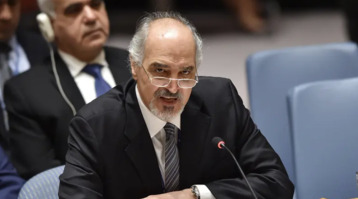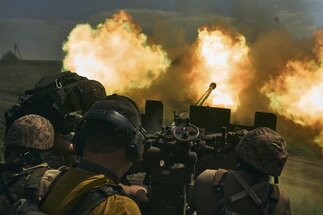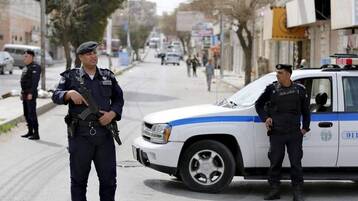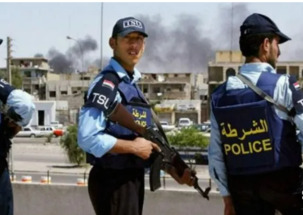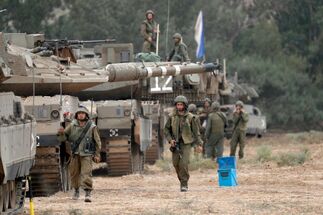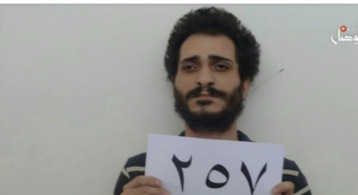-
Syria incursion delivers limited boost to Turkey’s Erdogan
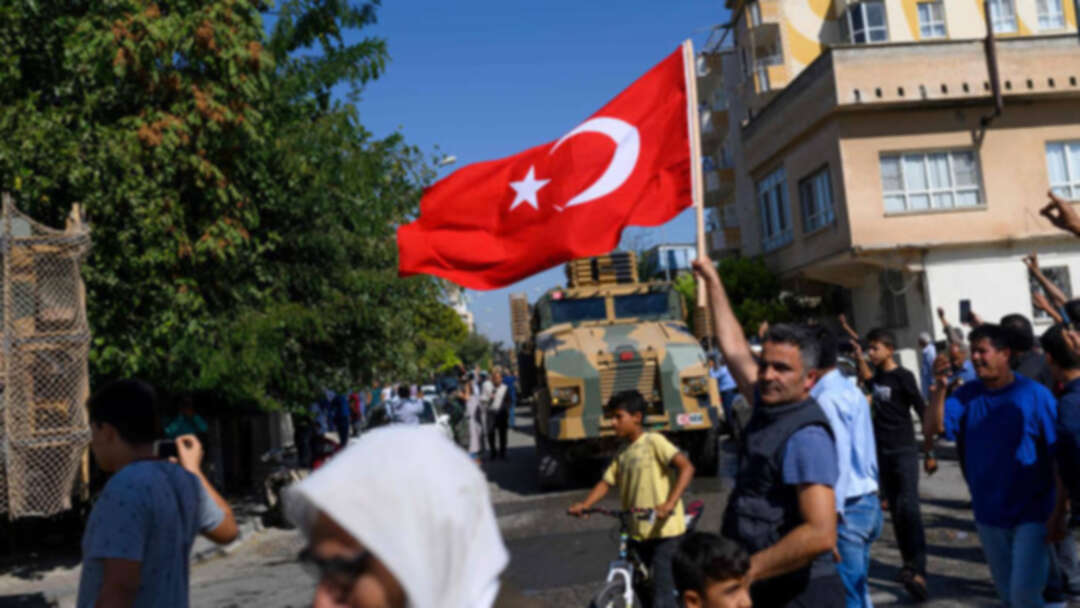
Turkey’s President Recep Tayyip Erdogan enjoyed strong domestic backing for last month’s contentious military incursion into Syria but already that patriotic bounce has begun to fade.
For a leader who had been under pressure, grappling with a troubled economy and setbacks in recent local elections, the assault brought a welcome shift in the public discourse as the country was engulfed by a wave of nationalist fervor. While foreign nations condemned Mr. Erdogan, at home the operation against the Syrian Kurdish militias that Ankara views as terrorists was overwhelmingly popular.
“During the operation — especially in the first two or three weeks — everyone was talking about it,” said Seren Selvin Korkmaz, director of Istanbulpol, a think-tank. “Erdogan gained space and time to maneuver.”
Now, with the military operation largely over, political analysts say it is striking how little political support Mr. Erdogan has gained.
Polling by Istanbul Economics Research (IER), a consultancy, found that 79 percent of voters deemed the operation a success. In contrast, support for Mr. Erdogan barely changed, with his ruling alliance gaining by just 2 percentage points, according to another survey by the consultancy, published at the start of November. Another agency, Metropole, gave the Turkish president a slightly larger, four-point bounce in popularity.
“Normally, one would expect much larger fallout than what happened,” said Can Selcuki, IER’s director. “Politics is at a stalemate right now. It seems that, no matter what the opposition says and what the government does, it doesn’t affect their votes.”
Mr. Erdogan may benefit in other ways — most notably from the strain the military offensive has placed on his political opponents.
A key factor behind the defeat of the president’s party in Istanbul and other big cities in elections in March was the decision by Turkey’s previously fractured opposition parties to team up.
The People’s Democratic Party (HDP), which draws much of its support from members of Turkey’s large Kurdish minority, played a critical role by asking its voters to support several candidates from the People’s Republican Party (CHP).
The military incursion into Kurdish-held areas of Syria tested that alliance. The CHP was one of several opposition parties to support the operation, while the HDP vehemently opposed it and has found itself on the receiving end of a fresh crackdown by authorities on Turkey’s Kurdish community.
“Of course it has negatively affected the relationship between the CHP and the HDP,” said Azad Baris, a vice-chairman of the HDP party. Right now HDP supporters, especially in Turkey’s Kurdish-majority eastern region, “do not want to hear anything about the CHP”, he said.
Such statements are likely to please Mr. Erdogan, who last month said he wanted to see the break-up of the opposition coalition, describing it as “very, very important”.
Please use the sharing tools found via the share button at the top or side of the articles. Copying articles to share with others is a breach of FT.com T&Cs and Copyright Policy. Email [email protected] to buy additional rights. Subscribers may share up to 10 or 20 articles per month using the gift article service. More information can be found at https://www.ft.com/tour.
https://www.ft.com/content/b39fb81e-062a-11ea-a984-fbbacad9e7dd
Although the next presidential vote is not scheduled until 2023, many in Turkish political circles believe that it will take place sooner. And Mr. Erdogan — a shrewd political operator who has dominated Turkish politics for the past 17 years — often appears to be on a constant election footing.
Officials from both the CHP and HDP insist that they can overcome this difference in Syria and will campaign together at the next presidential election. “For democracy, we have to do it,” HDP’s Mr. Baris said.
They are likely to be joined in the ranks of the opposition by at least two new parties. Former prime minister Ahmet Davutoglu and former deputy prime minister Ali Babacan, both of whom served for years in Mr. Erdogan’s governments, each plan to establish parties before the end of the year and ultimately capture votes from the president’s base, according to people familiar with their plans.
The swelling of the Turkish opposition, combined with a lackluster economic outlook, presents Mr. Erdogan with difficult challenges in the months ahead.
While a recession triggered by last year’s currency crisis ended more quickly than many economists predicted, the government forecasts growth of just 0.5 percent this year. Unemployment is close to a record high in seasonally adjusted terms and most analysts believe the government will struggle to deliver a quick return to the fast-paced growth that used to underpin Mr. Erdogan’s support.
With the onset of winter expected to drive home the impact of recent rises in gas and electricity prices, analysts say the popularity of Turkey’s latest military venture will be quickly forgotten.
“The impact of . . . international issues on domestic politics in Turkey is short term,” said Toygar Sinan Baykan, an assistant professor at Kirklareli University. “Problems regarding the rule of law, the economy — sooner or later the public will go back to discussing these issues.”
You May Also Like
Popular Posts
Caricature
BENEFIT Sponsors Gulf Uni...
- April 17, 2025
BENEFIT, the Kingdom’s innovator and leading company in Fintech and electronic financial transactions service, has announced its sponsorship of the “Innovation and Sustainable Technology Solutions Competition (GU - IST Solutions), hosted by Gulf University at its main campus.
This strategic sponsorship reflects BENEFIT’s active role in advancing technological innovation and fostering sustainable solutions to future challenges. It also seeks to empower Bahraini youth by enhancing their skills, capabilities, and competitiveness in innovation and solution development—contributing meaningfully to the broader goals of sustainable development across all sectors.
As part of BENEFIT’s active involvement in the competition, the company has announced that Hanan Abdulla Hasan, Senior Manager of Public Relations and Communication, will serve on the competition’s supervisory committee. Her upcoming participation reflects BENEFIT’s forward-looking commitment to championing academic and professional excellence.
Commenting on the occasion, Hanan Abdulla Hasan, Senior Manager of Public Relations and Communication at BENEFIT, said, “We are privileged to support this pioneering initiative, which aligns seamlessly with BENEFIT’s enduring commitment to fostering innovation and nurturing the potential of Bahrain’s youth. Our participation is rooted in a deep sense of social responsibility and a firm belief in the pivotal role of innovation in shaping a sustainable future. Through such platforms, we seek to empower the next generation with the knowledge, skills, and foresight required to develop impactful solutions that address future challenges, in line with the United Nations Sustainable Development Goals 2030.”
Dr. Aseel Al Ayash Dean of the College of Engineering in Gulf University commented, “We extend our sincere gratitude to BENEFIT for their generous sponsorship and support of the Innovation and Sustainable Technology Solutions Competition. This contribution plays an instrumental role in helping us achieve the strategic goals of this initiative, namely, cultivating a culture of innovation and sustainability, encouraging efforts that address the imperatives of sustainable development, and enhancing the practical and professional capabilities of our students and participants.”
The event will bring together a diverse spectrum of participants, including secondary school students, university undergraduates, engineers, industry professionals, entrepreneurs, academic researchers, and subject matter experts representing a wide range of disciplines.
The competition seeks to inspire participants to develop and present innovative, sustainable technologies aimed at addressing pressing environmental, social, and economic challenges. It encourages the formulation of business models that integrate advanced technological solutions with core principles of sustainability. Moreover, it serves as a platform for emerging leaders, entrepreneurs, and innovators to contribute to the advancement of the Sustainable Development Goals, promote the ethos of responsible technology, and demonstrate its transformative potential across various sectors.
Attendees will have the opportunity to view a series of project presentations submitted by participants, covering diverse areas such as eco-friendly product design, smart and sustainable innovations, renewable energy technologies, water conservation and management, waste minimisation and recycling, green architectural solutions, and sustainable transportation systems. Outstanding projects will be formally recognised and awarded at the conclusion of the event.
opinion
Report
ads
Newsletter
Subscribe to our mailing list to get the new updates!

